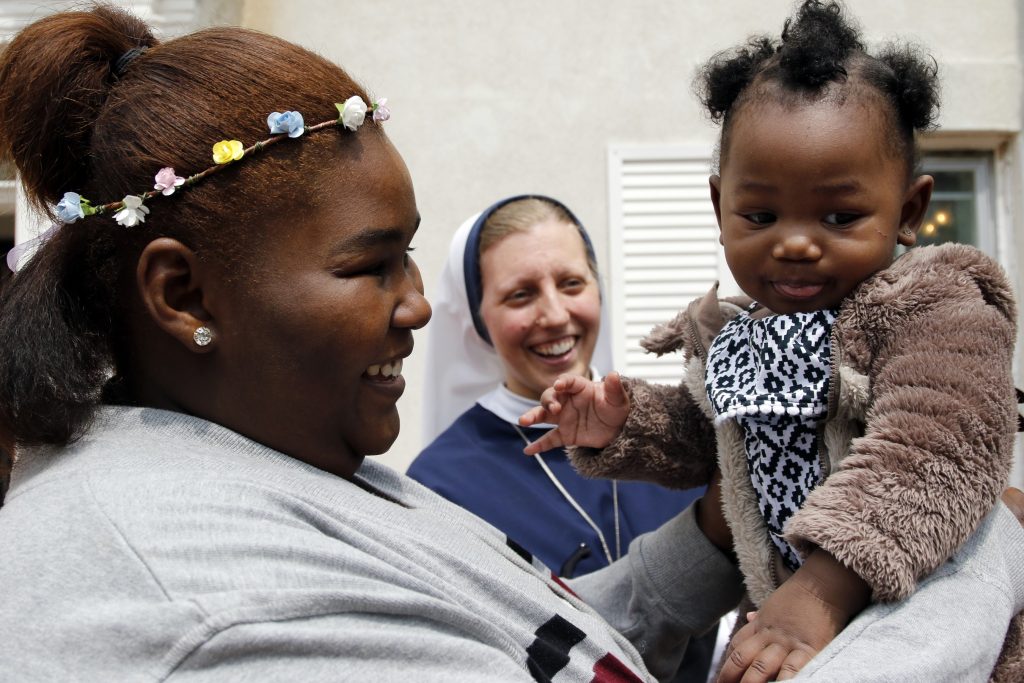I was born in 1981, eight years after Roe v. Wade convinced American women they had a newfound constitutional right to abortion. When my mother became pregnant outside of marriage, she was pressured to exercise that alleged right. I was scheduled to be aborted at Mt. Sinai Hospital in Hartford, Connecticut.
I am alive because an African American janitor saw my mother crying in the hospital hallway and approached her, asking if she wanted to keep her baby. My mom said yes. The janitor’s peaceful eyes and the words she spoke — “God will give you the strength to have this baby” — led my mother to choose life.
I’ve been involved in pro-life work for almost 20 years. As a Black woman, I am deeply grieved that abortion is the leading cause of death in our community.
Black women have a rate of abortion that is three times higher than other groups — at 13.4% of the population, we have 33.6% of all abortions in the U.S. Such high rates show how the abortion industry has targeted our communities: 78% of surgical abortion facilities are located in low-income and minority neighborhoods.
I am starting to dream of what a post-Roe world could look like for women of color in this nation.
A post-Roe world would force us to find a solution to maternal mortality in a country where Black women are three times more likely to die from a pregnancy-related cause than white women.
Nearly 50 years of legalized abortion has not lowered our maternal mortality rates, which dwarf the rates of nations with greater restrictions on terminating pregnancies.
Pregnant women need compassionate health care providers who listen to their needs, not an “easy way out” of challenging circumstances. They need to know of the more than 1,000 pregnancy resource centers in the United States that offer real support and reduce maternal mortality.
I am beginning to imagine a world in which pregnancy is literally life-giving for Black mothers and their babies.
In a post-Roe world, politicians and organizations would have no choice but to unite across the aisle to offer greater support for pregnant women and families. In my home state of Connecticut, roughly 75% of abortions are paid for through the Medicaid program. The ability to end a child’s life is offered as a “benefit” from the government for low-income women and women of color. Women are offered “aid” in the form of poisonous pills and violent procedures that destroy their offspring.
The United States is the only developed nation in the world that doesn’t offer paid parental leave, which facilitates family bonding during the important postpartum period for moms, dads, and children.
Statistics show that Black workers are 83% more likely than their white peers to be unable to take leave when needed, and that workers of color are more likely to remain uncovered by the Family Leave Medical Act, which provides unpaid leave for full-time workers.
Pregnant women need support to parent their children or place them for adoption instead of being provided incentives to end their lives. This route is more costly, but obviously worth the investment.
Sadly, not all of our elected leaders want to make that investment. A few of my Black pro-life friends once confronted a politician who said he wouldn’t end abortion in his state because, “we’d be overrun by Black babies.”
I dream of a different response in a post-Roe world, one that makes room for all children.
In a post-Roe world, violence against women wouldn’t be as easily covered up. My mother gravitated toward abortion because of coercion from a male partner.
She’s not alone. The sex-trafficking industry is propped up by abortion-on-demand, which keeps traffickers in business. The FBI reports that 40% percent of sex-trafficking victims are African American, with that number being larger in major metropolitan areas, and 57.5% of all juvenile prostitution arrests are Black children, many who are victims of trafficking.
If abortion is off the table, we don’t have to allow Planned Parenthood and others to continue covering up the crimes of pimps and traffickers.
In a world without Roe women would be better protected from abuse; employers won’t incentivize female employees to kill their children; and taxpayers and politicians could work to support children and their mothers for the long haul.
It would be a world where Black women can live out the dreams our ancestors fought for, without the incentives to kill our offspring. It is the kind of world which that janitor in a hospital hallway helped to initiate 40 years ago. And because of her actions, it’s the type of world I’m helping to create with the life I’ve been given.

